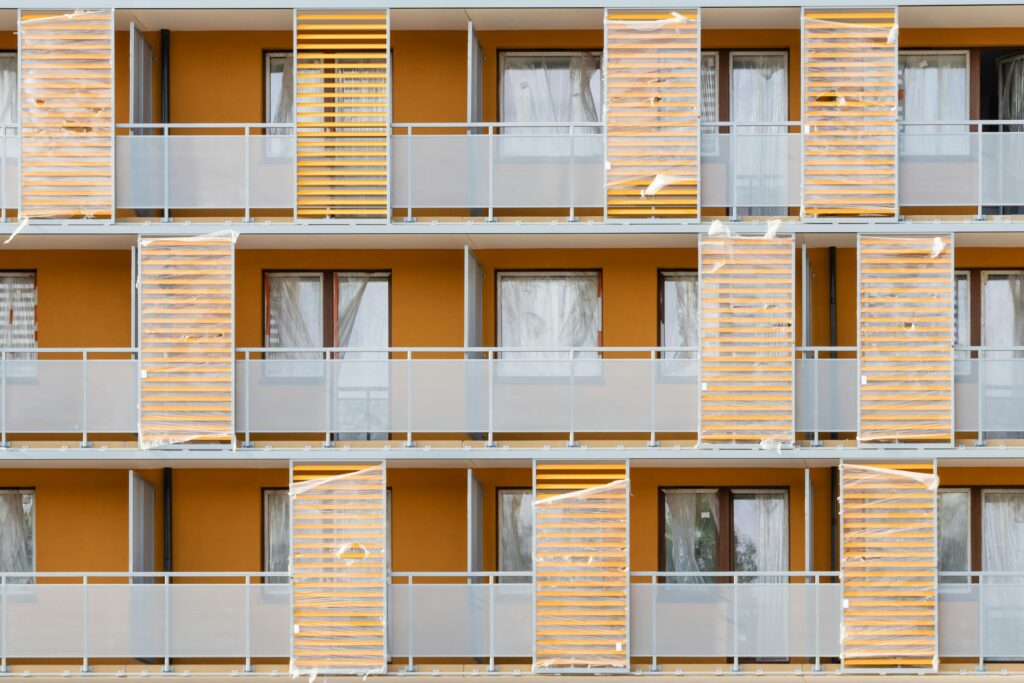Who Pays Inheritance Tax on a Jointly Owned Property?

Estimated reading time 6 minutes
Tax is complicated even when it seems to be in its simplest form, and inheritance tax is no different. Paid upon the death of an individual, it can be costly, and confusing. Perhaps even more so when a property is jointly owned. Who pays inheritance tax on a jointly owned property depends on the ownership of the property and whether any specific exemptions apply. Being married, for example, or being tenants in common will largely change how inheritance tax is paid on a jointly owned home.
In this blog, we look at how inheritance tax applies to such a property and who has the responsibility of paying it.
What is inheritance tax?
Inheritance tax is the tax applied to the estate of someone who has died. The estate includes everything from property to possessions and must be handled by an executor of the will. It does not apply to everyone though. At the time of writing, no inheritance tax is due on an estate with a value of less than £325,000. Further allowances may also apply pushing that nil band up even further. In the case of a married couple for example, it is quite possible for up to £1m worth of assets to be left without inheritance tax affecting them.
Due within six months of death, inheritance tax can often spring surprises with how much is owed. Set at 40%, it can be costly and has been known to require the sale of assets or property to cover the cost.
How does inheritance tax work on jointly owned properties?
We first have to look at the ownership of the home. The rules for inheritance tax for married couples are considerably different to how they are for individuals who just live together.
Married couples
If you are married or in a civil partnership and you jointly own the home, the assets of the deceased are passed on to the remaining partner and are exempt from inheritance tax. There is no cap on this meaning the estate can be of any value. The surviving spouse then inherits full ownership rights and inheritance tax will only apply upon their passing. The value of the assets of both partners then being combined, allowing up to £1 million exempt from IHT.
This only applies to married couples or those in a civil partnership and does not include unmarried couples who simply own the home together.
Joint tenants
The term joint tenants applies to unmarried homeowners who have joint ownership of the home where there is no clearly defined split of who owns what share. In such cases, upon death, the share of the deceased automatically passes to the remaining owner. This may push the entire estate value to more than the £325,000 limit and mean that inheritance tax is then due. Should the deceased person’s estate cover the IHT then the remaining owner will have nothing to pay.
Tenants in common
Tenants in common is the term given to a jointly owned property where a clearly defined share is owned by each party. This could be any split of ownership from 1/99 to 50/50.
In cases such as this, the property share of the deceased does not automatically pass to the other tenant/s. Instead, the share of the property owned by the deceased is classed as part of the estate and may require a valuation to assess its true value. Upon the valuation, there will be a clearer idea of whether IHT is due.
Who is liable for the inheritance tax here can be complicated. If for example, you were left the share owned by the deceased, you will need to pay the tax on that share should the total value of the estate exceed £325,000. If the share of the property was left in the will, the executor will pay the inheritance tax out of the estate. However, should the estate not have enough money to pay the IHT on the deceased person's share, you may need to sell the home to cover the tax owed.
How much inheritance tax do you pay on a jointly owned property?
Inheritance tax is calculated at 40% of the deceased person's estate. For it to apply, the estate must be worth more than £325,000. If you are married and jointly own the property, you will not be required to pay any inheritance tax on any assets left to you by the deceased. This unused allowance can then be passed on to your own allowance for when you pass away.
The total amount of inheritance tax can be reduced where the property is jointly owned. Whilst 40% is the standard rate, discounts may be applied but these should be assessed with a tax specialist, so you do not fall foul of any tax rules.
Who pays inheritance tax on jointly owned property?
This will all depend on whether you owned the property as joint tenants or as tenants in common. If the home was under joint tenant ownership, the share owned by the deceased will be passed to you outside of the will. IHT might still be due though if the total value of assets is more than £325,000 and the tax has not been paid by the estate.
Should you own the property as tenants in common, the IHT will be settled by the executor of the will. If the share of the property was passed to you, you’ll potentially have to pick up the IHT bill should it not have been settled by the estate and it exceeds £325,000.
How do you know if your property is jointly owned or tenants in common?
The vast collection of paperwork you have for owning the home will contain information relating to the ownership of the home. Your lease and HM Land Registry documents will contain all you need to know. Should you not be able to find them, you should contact the freeholder or the Land Registry and ask for copies. Just be aware, there may be a charge for this.
Can inheritance tax be avoided on jointly owned property?
It can, gifting assets at least seven years before death may enable the estate to drop below the £325,000 threshold and therefore remove the concern of a hefty inheritance tax bill. Furthermore, taking advantage of the additional main residence band could see a further £175,000 added to the IHT allowance. In this instance, the deceased passes the home or their share to a direct relative. This could see the additional amount added to the allowance, increasing the threshold to £500,000.
If you need to sell an inherited home to either help pay the inheritance tax or give yourself a fresh start, speak to the Bettermove team. We enable you to sell your house fast, so you can satisfy the needs of the taxman, and move on with a new chapter, free from the constraints of a large tax bill. In our role as cash house buyers, we can buy any property, in any location within a time frame that suits you. Whether you need to sell in a matter of days or a matter of weeks, Bettermove is the better way to move.



